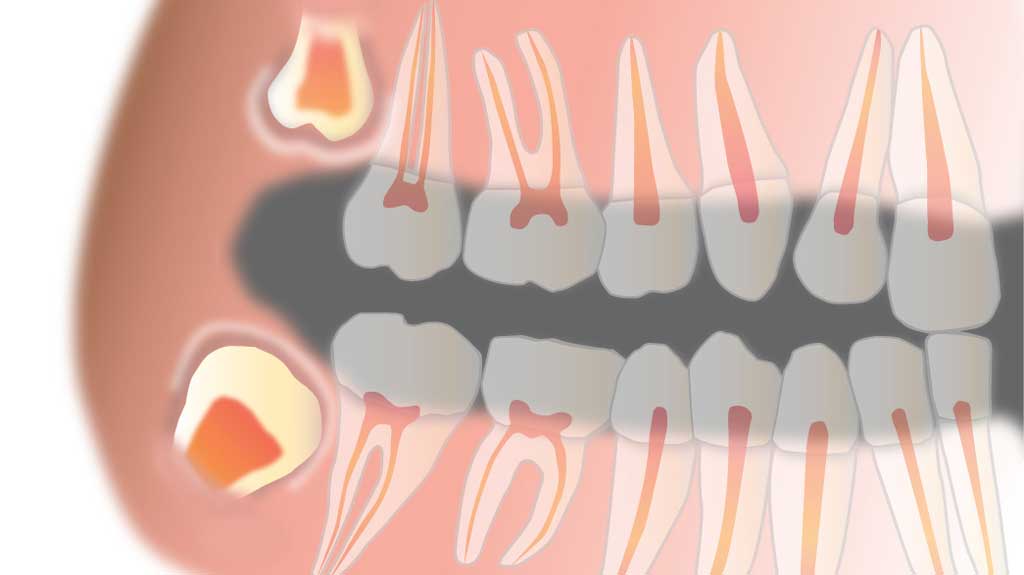Wisdom Teeth Removal
Wisdom teeth removal is incredibly common and greatly improves the long-term health of your mouth
What are Wisdom Teeth?
Wisdom teeth, or third molars, are the last teeth to erupt in your mouth and are the teeth least needed for good oral health. Most people have four wisdom teeth that usually erupt through the gums in their late teens or early twenties. Sometimes wisdom teeth remain trapped in the jawbone under the gums because there is insufficient room for them to erupt.
Wisdom teeth are any of the usually four “third molars.” Wisdom teeth usually appear between the ages of 17 and 25. Most adults have four wisdom teeth, but it is possible to have more, in which case they are called supernumerary teeth. Wisdom teeth commonly affect other teeth as they develop, becoming impacted or “coming in sideways.” They are often extracted when this occurs. About 35% of the population do not develop wisdom teeth at all.
Why Should I Remove my Wisdom Teeth?
Wisdom teeth are extracted for two general reasons. Either the wisdom teeth have already become impacted, or the wisdom teeth could potentially become problematic if not extracted. Potential problems caused by the presence of properly grown-in wisdom teeth include infections caused by food particles easily trapped in the jaw area behind the wisdom teeth where regular brushing and flossing is difficult and ineffective. Such infections may be frequent, and cause considerable pain and medical danger. Other reasons wisdom teeth are removed include misalignment which rubs up against the tongue or cheek causing pain, potential crowding or malocclusion of the remaining teeth (a result of there being not enough room on the jaw or in the mouth), as well as orthodontics.
Post Extraction Care
There are several problems that might occur after the extraction(s) have been completed. Some of these problems are unavoidable and natural, while others are under the control of the patient. The suggestions contained in the sections below are general guidelines by which a patient will be expected to abide, but the patient should follow all directions that are given by the surgeon in addition to the following guidelines. Above all, the patient must not disregard the given instructions; doing so is extremely dangerous and could result in any number of problems ranging in severity from being merely inconvenient (dry socket) to potentially life-threatening (serious infection of the extraction sites).

